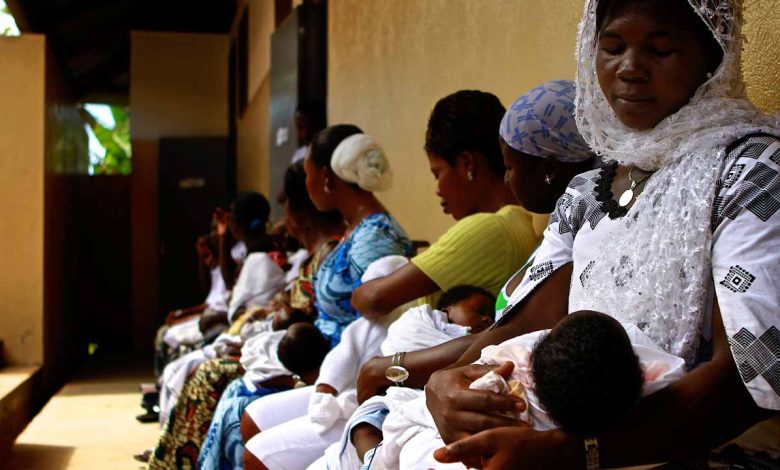
According to the latest report by the World Health Organisation (WHO) Nigeria has been ranked as the country with the second highest number of maternal, neonatal and child deaths worldwide.
The latest report by the World Health Organisation (WHO) has ranked Nigeria as the country with the second highest number of maternal, neonatal and child deaths worldwide.
The report made public on Tuesday, May 9, shows Nigeria trailing India as the two leading nations where mothers and their babies are most likely to die.
Eight other countries with high maternal, neonatal and stillbirths are Pakistan, the Democratic Republic of the Congo, Ethiopia, Bangladesh, China, Indonesia, Afghanistan, and the United Republic of Tanzania.
The report shows that progress in improving mothers’ and babies’ survival has stagnated since 2015, with around 290,000 maternal deaths occurring yearly.
At least 1.9 million stillbirths occur, and 2.3 million newborns die.
The report titled ‘Improving maternal and newborn health and survival and reducing stillbirth: Progress Report 2023′, shows that in India, 788 women and children died ‘per thousands’ in 2020, while Nigeria trailed with 540.
In that year, India accounted for 17 per cent of global maternal, neonatal deaths and stillbirths, while Nigeria’s represented 12 per cent.
More women died in Nigeria from pregnancy-related issues than in India and any other country that year. Nigeria lost 82 women ‘per thousands’.
Apart from India, which had 24 and was the country with the second highest number of maternal deaths, maternal mortality in Nigeria was more than in the remaining seven countries combined (71).
Stillbirths were highest in India (297), Pakistan (207)and Nigeria (181), neonatal deaths were also highest in the three countries – India (468), Nigeria (277) and Pakistan (257).
The report estimates there were a combined 4.5 million maternal, neonatal deaths and stillbirths in 2020.
“Sub-Saharan Africa and Central and Southern Asia are the regions experiencing the largest numbers of deaths, although across all regions, there is variation regarding the pace at which countries are progressing in their efforts to achieve the global 2030 targets.
The report notes that global progress in reducing maternal and newborn deaths and stillbirths has slowed during the last decade.
Speaking on the report, WHO said that based on current trends, more than 60 countries might miss the maternal, newborn and stillborn mortality reduction targets in the Sustainable Development Goals by 2030.
It blamed the crisis on the COVID-19 pandemic, rising poverty, worsening humanitarian and lack of funding by some countries.
